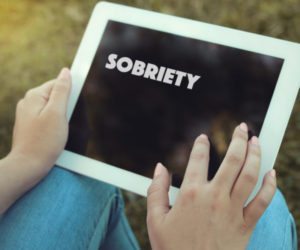10 Coping Skills for Addiction Recovery

Recovering from a drug or alcohol addiction is an extraordinary feat, but maintaining sobriety can be an overwhelming task for many. It’s important to learn the appropriate tools and coping skills necessary in order to avoid a relapse and life your life to the fullest. By developing these coping techniques, you or your loved one will be able to live a healthy and satisfying life in sobriety.
10 Coping Skills for Addiction Recovery
- Exercise
Taking part in daily physical activity can be a vital coping skill to avoid a relapse. Going for a daily walk or jog, or joining a gym can set you up for success. Exercise promotes mood elevation and provides you with more energy throughout the day. It provides you with an overall healthier lifestyle, help you sleep better, reduces your risk of health problems and can also improve your emotional and psychological state. Find a particular type of exercise or program you love and you will start seeing results.
- Create Positive Thoughts
The power of positivity has proven to be effective in the improvement of mental and emotional health. By allowing yourself to think in a more positive manner, you can avoid the negative thoughts that may have once caused you to use drugs or drink. Positive thinking has shown to increase life span, lower depression rates, improve physical and mental health, and allow you to cope more effectively with stress and other hardships.
- Meditation
One of the best and most effective ways to relax and destress is through meditation. You can find balance and peace by meditating for a few minutes every day. This form of relaxation has proven to have health benefits such as helping to ease the symptoms of anxiety, lower blood pressure, help with sleep problems, lower depression, and even helps in pain management.
- Be Honest with Yourself and Others
Part of the addiction coping strategies taught during rehab is the importance of staying accountable and honest with yourself and those you love. By doing this, you ensure that you stay on the right path of recovery, and avoid temptation. Lying was part of your past, it helped you use drugs and avoid those who were trying to help you – it was the easy way out. Unless you are completely honest with yourself, and those who care about you, you will certainly relapse. Being honest with your family, therapist, counselor, support group and sponsor are essential to making sure your addiction does not have a chance of reclaiming your life.
- Keep a Journal
Keeping a journal in recovery is a good way of keeping your thoughts and emotions is a safe and private place. Expressing your feeling through journaling, whether they are negative or positive, can help you focus and gain some insight and perspective into what you want out of life. Letting it out on paper prevents you from keeping pent up emotions that could lead to anger or depression if not written down.
- Find a Healthy Outlet
Throughout the course of your addiction treatment, you are taught to channel your negative thoughts and emotions in healthier and more productive ways. Finding a healthy outlet that will allow you to feel with the pain and negative thoughts can be extremely beneficial. You can volunteer at a local shelter or teach children about the dangers of addiction. You can do something as simple as planting a garden or taking a cooking lesson. The point is to invest your time in something that will be beneficial to your overall well-being and state of mind. Find something healthy and positive you love to do, and dedicate yourself to it.
- Go to Meetings Regularly
A key to coping with your recovery is to have the support of friends and family. In order to stay accountable through your addiction recovery journey, it’s also important to attend regular meetings and build up your support system. Trying to stay sober can be overwhelming and it can get lonely. With a strong support network, you’ll gain a sense of inclusion and belonging. You can also find support from co-workers, other addiction recovery groups, and even social media groups that are dedicated to providing strength and encouragement to those who need it most.
- Stop Procrastinating
Now is the time to take control of your life. Stop leaving it for tomorrow. Start that project you keep putting off, go take that scuba lesson you’ve always wanted to take or simply start setting small goals for yourself every day. Take it one day at a time, but start living now!
- Stop Avoiding
When you were using drugs or drinking, you probably isolated yourself from friends and family, either because you didn’t want to see them hurt or because you felt like they didn’t understand you. Addiction treatment teaches you to make amends and reach out to those you are about. Rebuilding relationships can make all the difference in your recovery.
- Find Balance
Finding peace and balance in your life is one of the most important things you can do on your journey of recovery. Look for ways to deal with stress, anger and negative thinking. Having people you can trust and rely on to help you through tough times can make all the difference in the world. Keeping your stress levels low and maintaining positivity will help to improve your overall well-being, as well as your mental health and emotional stability.
If you or a loved one needs help with abuse and/or treatment, please call the WhiteSands Treatment at (877) 855-3470. Our addiction specialists can assess your recovery needs and help you get the addiction treatment that provides the best chance for your long-term recovery.
